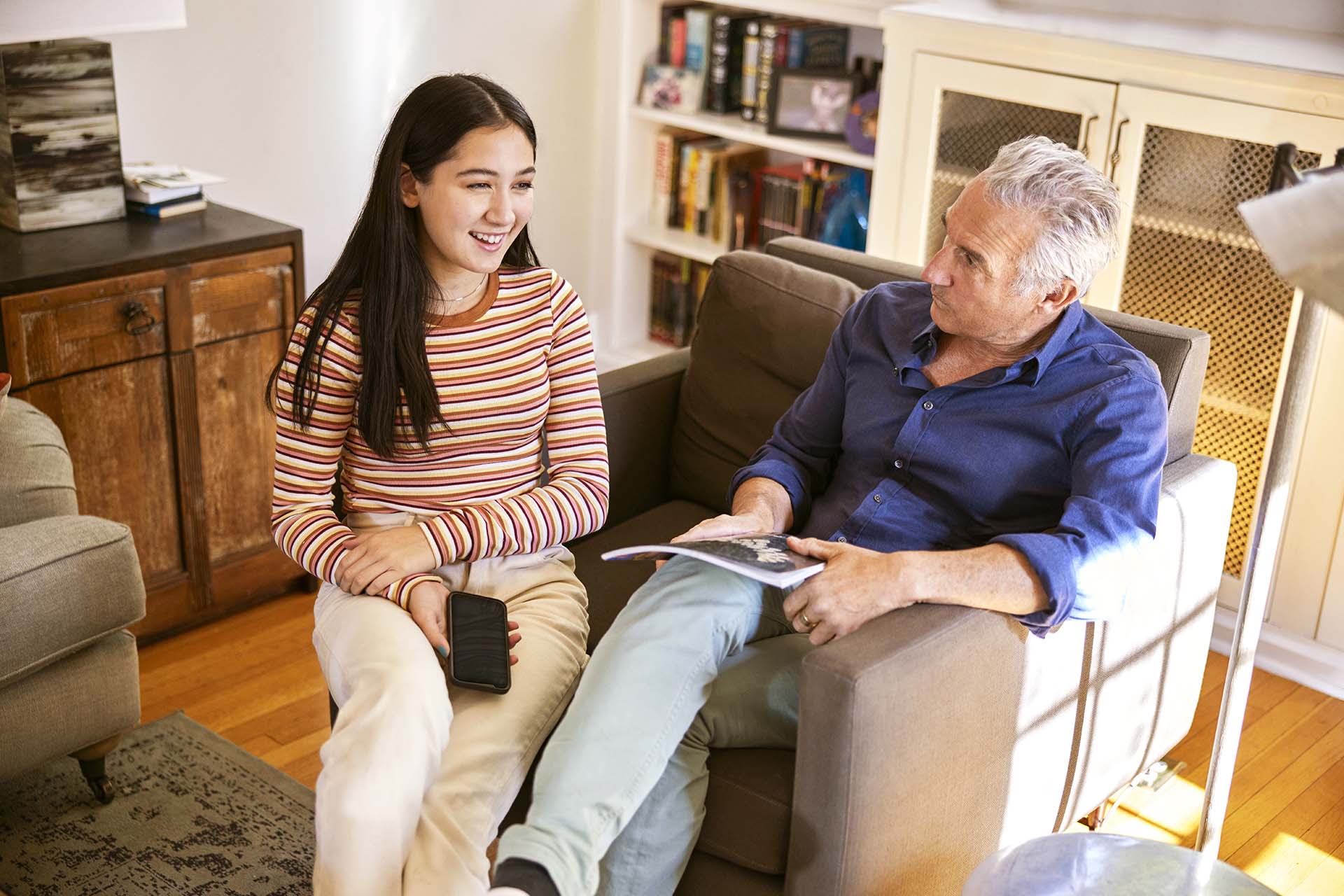The pandemic of early 2020 delayed dreams for young adults, who deferred college or jobs, or participated online, cancelled travel, or otherwise stayed at home more.
By now, some young adults have flown, while others are staying put. Students away at college may have extended holiday breaks or hybrid classes. In other words, the nest is about half empty.
Gerald Gonzales, PhD, clinical psychologist of Child and Family Services at Kaiser Permanente Fremont and site director of its Department of Mental Health and Addiction Medicine, shares tips for compatible cohabitating.
What makes the ages 18 to 25 important?
In my clinical practice I see there is an extension of social, emotional, and psychological development that happens during the young adult years. What they learn and experience during these years tends to be formative in developing their sense of self, how they relate to others, and how they fit into this world.
What have you observed about your patients over the pandemic?
The biggest concern I have is how many young adults in my practice are grieving. They’ve been robbed of multiple social milestones that we’ve taken for granted.
Engaging in behaviors that reclaims some of the loss might help them better process the grief. If a young adult was into exercise pre-pandemic and has found ways to return to it, then it’ll help with recovery. The more young adults can return to doing things that are aligned with their values, then the more those behaviors will feel psychologically healing from the trauma experienced.
What else do you advise?
The pandemic has shown us that we will constantly face adversity, and that we will need to be flexible and adjust our expectations. The moment young adults accept that, they can start to let go of their “shoulds” and focus on how they can achieve their desired life.
Second, I encourage them to practice mindfulness in their day-to-day activities. Being mindful of our emotional response, what we think, and how we behave is important.
Finally, young adults would greatly benefit from having both a morning and an evening routine to help them self-regulate and to better take on the multiple stressors that they have to face.
“The pandemic has shown us that we will constantly face adversity, and that we will need to be flexible and adjust our expectations. The moment young adults accept that, they can start to let go of their “shoulds” and focus on how they can achieve their desired life.”
How would you counsel parents?
Most parents think that they listen, but when I observe them, most don’t listen with the intent to understand. True listening is a gift because what you’re trying to do is to empathize and put yourself in the other person’s shoes.
If you’re a parent who sees your young adult struggle because of the pandemic, try truly listening and refrain from solving their problem. You’ll be surprised as to how your young adult might respond when they’ve felt heard and genuinely understood.

Where does self-care come into play?
Simply put, what’s good for the body is good for the brain and the mind. When we don’t regularly engage in general self-care, our body, brain, and mind are impacted.
What’s paramount in young adults is the need to connect with their peers. Human beings are wired to be social creatures. So I’d strongly prescribe young adults to socially connect with others by going out to dinner and doing something fun while practicing safety protocols.
Are there specific actions families can take together?
Every family and situation is going to be different. So a more customized plan of action for each family would be best. However, I recommend setting clear expectations as far as young adults’ schedule, grades, and even financial contributions.
Also, parents can motivate their adult children to learn how to resolve their problems on their own. At times, they’ll need coaching, so it’s important for families to have an understanding to problem solve together if the young adult’s proposed solution isn’t working.
Is there any silver lining here?
We have been given the opportunity to slow down, reflect, and determine what really matters. Despite not being fully back to normal, there are still special and meaningful moments throughout the day that will inform how young adults live their lives.





This Post Has 0 Comments